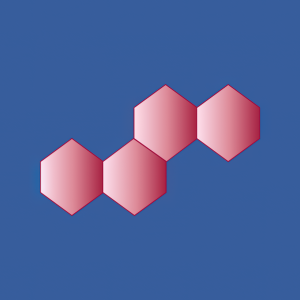Corcept Therapeutics Initiates CATALYST Clinical Trial
Corcept Therapeutics (NASDAQ: CORT) has launched the CATALYST trial, a significant 1,000-patient Phase 4 study focusing on hypercortisolism in type 2 diabetes patients. This trial, featuring a randomized, double-blind, placebo-controlled design, aims to assess the prevalence of hypercortisolism and offer eligible patients treatment with Korlym. Corcept anticipates completing enrollment by year-end. Hypercortisolism, or Cushing's syndrome, affects around 20,000 individuals in the U.S. annually, leading to severe health complications. The CATALYST trial, backed by leading U.S. diabetologists, is expected to enhance patient care and outcomes.
- Initiation of the CATALYST trial with 1,000 patients reflects a strategic expansion for Corcept.
- The study aims to address a prevalent but often overlooked condition, improving potential market reach.
- Involvement of prominent diabetologists ensures robust study design and execution.
- Dependence on enrollment completion by year-end poses operational timing risks.
- Competition from generic treatments for hypercortisolism may impact Korlym's market position.
- Potential regulatory hurdles and market conditions could delay trial outcomes and commercialization.
Insights
Analyzing...
MENLO PARK, Calif., March 28, 2023 (GLOBE NEWSWIRE) -- Corcept Therapeutics Incorporated (NASDAQ: CORT), a commercial-stage company engaged in the discovery and development of medications to treat severe endocrine, oncologic, metabolic and neurological disorders by modulating the effects of the hormone cortisol, today announced that it has initiated CATALYST, a 1,000-patient, Phase 4 trial examining the prevalence of hypercortisolism in patients with difficult to control type 2 diabetes. Those patients with hypercortisolism will be offered entry into a randomized, double-blind, placebo-controlled study of Korlym®.
“We are excited that our CATALYST trial is now open,” said Bill Guyer, PharmD, Corcept’s Chief Development Officer. “Many smaller studies conducted over the last fifteen years have found that the prevalence of hypercortisolism in patients with type 2 diabetes is substantially higher than in the general population. The most prominent diabetologists in the United States helped us design and are participating in CATALYST, which will be the largest study of its kind ever to be conducted. Data from CATALYST will enable physicians to better identify and care for these patients. We expect to complete enrollment by the end of this year.”
Hypercortisolism
Hypercortisolism, often referred to as Cushing’s syndrome, is caused by excessive activity of the hormone cortisol. Endogenous Cushing’s syndrome is an orphan disease that most often affects adults aged 20-50. In the United States, an estimated 20,000 patients have Cushing’s syndrome, with about 3,000 new patients diagnosed each year. Symptoms vary, but most patients experience one or more of the following manifestations: high blood sugar, diabetes, high blood pressure, upper-body obesity, rounded face, increased fat around the neck, thinning arms and legs, severe fatigue and weak muscles. Irritability, anxiety, cognitive disturbances and depression are also common. Hypercortisolism can affect every organ system and can be lethal if not treated effectively. Corcept holds patents directed to the composition of relacorilant and the use of cortisol modulators, including Korlym, in the treatment of patients with hypercortisolism.
About Corcept Therapeutics
Corcept has discovered a large portfolio of proprietary compounds that selectively modulate the effects of cortisol and owns extensive United States and foreign intellectual property covering both their composition and their use to treat a variety of serious disorders. Clinical trials are being conducted with the company’s leading selective cortisol modulators as potential treatments for patients with serious disorders – Cushing’s syndrome, ovarian, prostate and adrenal cancer, ALS, post-traumatic stress disorder and liver disease. Corcept’s drug Korlym® was the first medication approved by the U.S. Food and Drug Administration for the treatment of patients with Cushing’s syndrome.
Forward Looking Statements
Statements in this press release, other than statements of historical fact, are forward-looking statements based on our current plans and expectations that are subject to risks and uncertainties that might cause our actual results to differ materially from those such statements express or imply. These risks and uncertainties include, but are not limited to, our ability to operate our business, conduct our clinical trials and achieve our other goals during the COVID-19 pandemic and generate sufficient revenue to fund our activities; the availability of competing treatments for hypercortisolism, including generic versions of Korlym; our ability to obtain acceptable prices and adequate insurance coverage and reimbursement for Korlym; risks related to the development of our product candidates, including their clinical attributes, regulatory approvals, mandates, oversight and other requirements; the timing, cost and outcome of legal disputes and investigations; and the scope and protective power of our intellectual property. These and other risks are set forth in our SEC filings, which are available at our website and the SEC’s website.
In this press release, forward-looking statements include, among others: the design, timing and expectations regarding our CATALYST trial. We disclaim any intention or duty to update forward-looking statements made in this press release.
CONTACT:
Corcept Therapeutics
Investor Relations
ir@corcept.com
www.corcept.com








